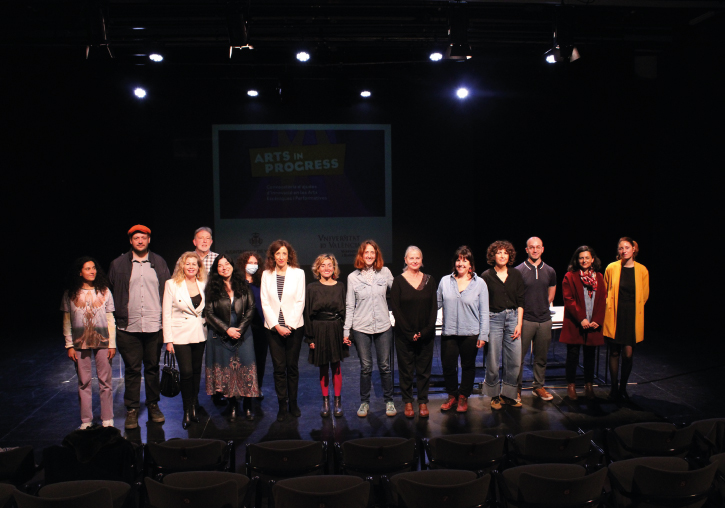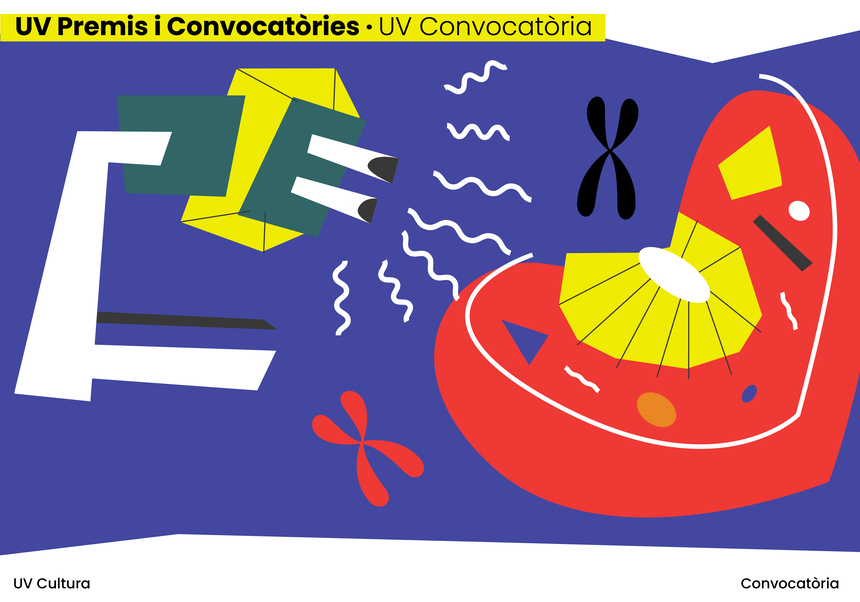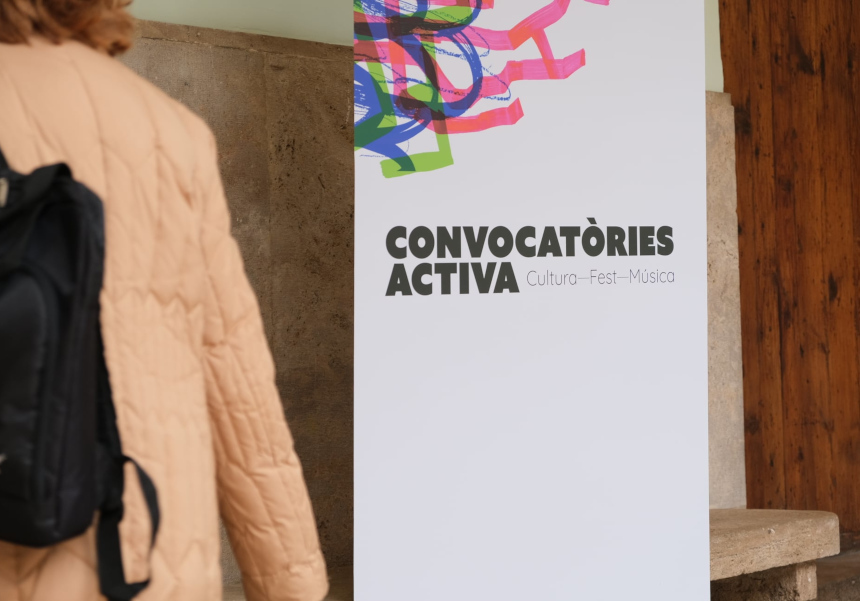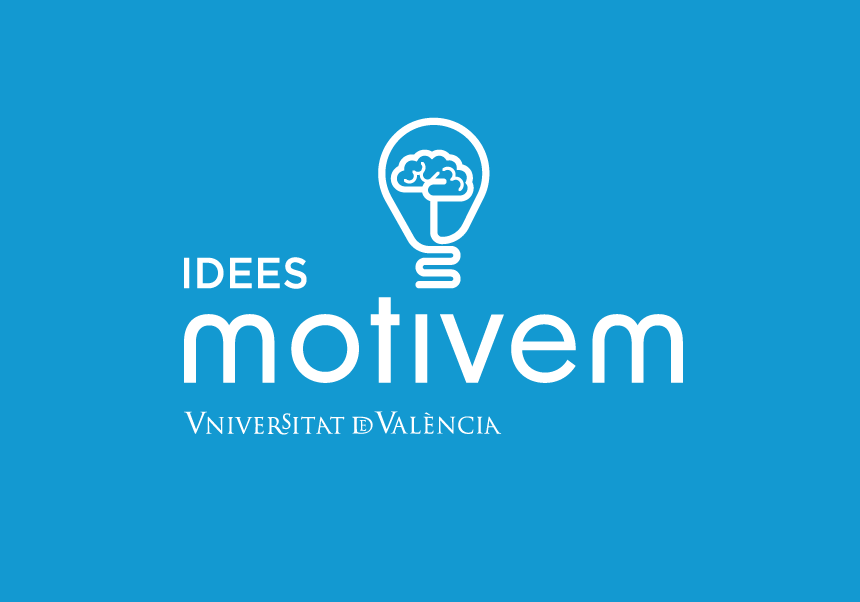Valencia’s City Hall and the Universitat announce the winning projects of the call ‘Arts in Progress’, granted with 30,000 euros
- Office of the Vice-Principal for Culture and Society
- May 2nd, 2022

On Monday, May 2nd, La Nau Cultural Centre held the award ceremony for ‘Arts in Progress’, a programme promoted by the Universitat de València, through the Office of the Vice-Principal for Culture, and Valencia’s City Hall, through the Cultural Action Councillorship, with the intention of promoting innovative performing arts projects. In total, the 8 winning projects will share the 30,000 euros Cultural Action has founded this call with.
‘Arts in Progress’ is a proposal born from the desire of supporting innovation in performing arts. The main aim of these grants is to promote projects that foster new languages and experiences in performing arts, both living and performance. Maite Ibáñez, city councillor of Cultural Action of Valencia’s City Hall; Ester Alba, Vice-Principal for Culture and Society of the Universitat de València; and Adela Cortijo, Head of the University Culture Service of the Universitat de València, have taken part in this event. Out of the 37 submitted proposals, 8 projects from the various disciplines have been awarded in this call.
Adela Cortijo has explained that these awards are part of ‘Nau Social’, a University Culture Service programme that aims to “reinforce and point out the value of the multifaceted role of art, culture and cultures as a tool for integration and social cohesion, for improving life conditions and for considering cultural artistic spaces as generators of dialogue, knowledge and personal and community enrichment."
The city councillor, Maite Ibáñez, has highlighted the importance of “the joint effort from public institutions to promote initiatives that strengthen the work of the performing arts professionals.” Furthermore, she has stated that, in line with this call, “some of our objectives are to encourage the innovation of stage languages, to support creation, research, talent and emerging artists and to create new audiences to revitalize this city’s cultural life.”
Finally, the Vice-Principal Ester Alba has stated that programmes like ‘Arts in Progress’ are a way of drawing attention to “the contribution of arts to society, a role that was also evident during the pandemic, when arts were incorporated in our daily life to build and improve society.” She has also expressed her satisfaction with the alliance with Valencia’s City Hall, since it has enabled the development of this and other cultural projects aimed to citizens.
The 8 winning projects
The winning projects of the performance modality have been ‘Biotopo’ (Biotope), by Vicent Pelechano and Alba Murcia; ‘Candi Max’, by Juana María Varela Marco; and ‘MEME – Antes todo esto era campo vol2’ (Before, all of this was countryside vol2), by David de la Fuente Orrico. ‘Biotopo’ is a mainly sonorous and performative stage proposal that uses extracts from the film of the same name by Valencian filmmaker Carles Mira as dialogue. The work addresses relationships between humans and nature, and the endangered species that live in L’Albufera de València, among other topics. As for ‘Candi Max’, it studies the sound of illness. The objects, emotions and shapes that make us identify with it will be the starting points of this stage project. Finally, ‘MEME – Antes todo esto era campo vol2’ is a formal stage research that continues the proposal by ‘Antes todo esto era campo’. Orrico presents a search for the dramatic possibilities of plants as living interfaces.
The theatre modality has also got attention in the first edition of ‘Arts in Progress’. Ana Sánchez-Ulloa Pérez has been awarded for her proposal ‘Aquellas pequeñas cosas’ (Those little things), an interdisciplinary piece that uses documentary theatre and live music to experience significant episodes of Spanish History in the 20th century through anecdotes of the author’s family evoked by the memory contained in the objects. The second theatre production that has been awarded is ‘Última Lluna de Mercurio Montesco’ (Mercurio Montesco’s last moon), by the theatre group Perros Daneses y Yapadú Produccions. This play is born from the need of this young group to face a classic. The group addresses topics like the experiences of young people during the state of alarm, freedom, etc. ‘Artes vivas en la escuela de madres del Colegio Santiago Apóstol del Cabanyal’ (Living arts at El Cabanyal mothers’ school of the Santiago Apóstol school), by La Subterránea Coop V, has also been awarded. This is a jointly creation by a group of Romani women from the mothers’ school of the Santiago Apóstol school in El Cabanyal neighbourhood.
Finally, the dance modality has also been present among the awarded, with the proposals ‘Proyecto Lola’ (Lola’s project), by Gema Gisbert Huerta, and ‘Sanar l’anima’l’ (To heal the soul and the animal), by María Tamarit. ‘Lola’, through a contemporary dance piece and the development of the text ‘Memoria de una infancia trans’ (Memories from a trans childhood), delves into the creation of an audiovisual work on trans childhood with a recreational and innovative approach. ‘Sanar l’anima’l’ is an approach to the body through perception and appreciation of nature as inspiration and source for movement.
File in: Cultura , Arts escèniques
















